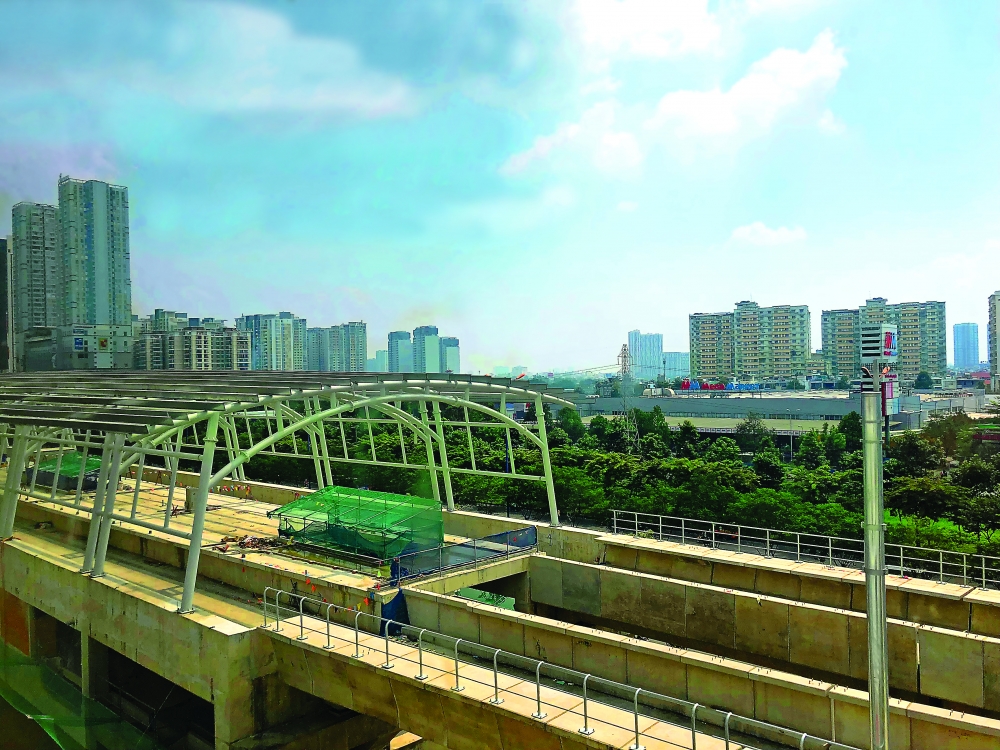
Delays in ODA disbursement
According to the Ministry of Finance, in the first 10 months of 2019, Vietnam signed five loan agreements, including four with the Asian Development Bank and one with the OPEC Fund for International Development (OFID), for total value of about US$463 million. In the reviewed period, disbursement of official development assistance (ODA) and preferential loans reached US$1.65 billion, accounting for about 35.4 percent of the approved plan.
From April to October 2019, JICA executed 28 ODA-funded projects in Vietnam and signed no new loan agreements. About JPY8.798 billion was disbursed in the reviewed period. The agency is executing 33 projects on technical cooperation as well as four non-refundable aid packages in Vietnam.
According to JICA, many new ODA projects on technical cooperation and non-refundable aid packages carried out by JICA have been signed and implemented smoothly. However, there was a delay in some projects signed in 2018 and the slow disbursement of capital in projects underway.
Ho Chi Minh City is the largest recipient of ODA in Vietnam. In the first nine months of 2019, ODA disbursement in Ho Chi Minh City reached VND383.5 billion, completing 16.27 percent of the approved plan. The Ho Chi Minh City Department of Planning and Investment attributed the slow disbursement and failure to meet the approved plan to red tape, and slow compensation and site clearance.
The Ho Chi Minh City People’s Committee has proposed to the Ministry of Planning and Investment in coordination with the Ministry of Finance to speed up ODA allocation.
Changes to suit new situation
JICA in Vietnam Chief Representative Konaka Tetsuo said many positive actions such as a decline in public debt-to-GDP ratio and the government’s increased focus on improving the efficiency of public spending are expected to accelerate implementation of ODA projects.
Speaking at an October news conference in Hanoi, Tetsuo said Japanese ODA policy on Vietnam has to be adjusted to changes in the global economy and political landscape as well as to Vietnam’s rapid growth. JICA has piloted several new assistance projects, such as a knowledge-sharing program to develop new models of care services for the elderly and a project on developing e-government and promoting cyber security.
The Vietnamese government will promote the formulation of the Socioconomic Development Strategy for the 2021-2030 period, the Socioconomic Development Plan for the 2021-2025 period and sectorial, local development master plans for the 2021-2030 period. Also in 2020, Vietnam will assume the ASEAN Chairmanship and serve as a non-permanent member of the United Nations Security Council. Therefore, the country needs to play a pioneering role in global issues, such as climate change, universal health coverage (UHC), and sustainable development goals (SDGs), Konaka Tetsuo said.
He also said JICA would continue supporting the Vietnamese government’s long-term plans and implementing cooperation projects to address issues not only in Vietnam but also at the regional and international level, in line with the Japanese government’s Indo-Pacific strategy and the high-quality infrastructure policy.


















